Wacky & Weird Show Gets Electrified
The Tokyo Motor Show, held once every two years, is known for its wacky and weird automotive concept car creations designed primarily for the Japanese market. But it almost always boasts a few significant world premieres from local automakers. This year is no exception with electrified cars taking center stage, reflecting the show’s theme: “Beyond the Motor.” Here’s a preview of several of the electric cars that will debut during media days at the Tokyo Motor Show on October 25 and 26, 2017.
HONDA
On the heels of its electric Urban EV revealed on last month’s Frankfurt show, Honda will roll out the Sports EV Concept, a new battery-powered sports car. A teaser rendering of the Concept shows a rear-slung performance silhouette with a long hood, rounded rear fenders and square taillights having the same appearance as the hatch-styled Urban EV. The Sports EV Concept marries EV performance and artificial intelligence into a compact form and is expected to be produced for sale in China and Europe.
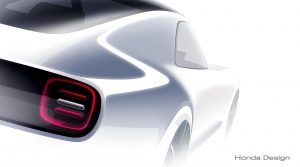
For the U.S. market, Honda is rumored to debut a hybrid CR-V small crossover that will utilize the company’s new two-motor i-MMD system. It’s a little late to the game, following the Toyota RAV4 Hybrid, Nissan Rogue Hybrid and Kia Niro Hybrid, but will help the automaker continue as the best-selling compact crossover SUV in North America.
LEXUS
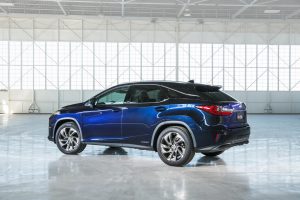
The Lexus RX series five-passenger luxury crossover has long been the segments top-selling model, but has lost sales to makers who offer seven-passenger seating. Lexus will no longer take that hit by introducing a seven-passenger version with both gasoline and hybrid powertrains. Named the RX 350L and RX350hL, the three-row SUVs will take on rivals BMW X7, Mercedes-Benz GLS, Volvo XC90 and Range Rover.
MITSUBISHI
Now part of the Renault-Nissan Alliance, Mitsubishi is ready to climb back up the automotive ladder with the introduction of the e-Evolution concept. No, it’s not a revival of the Lancer Evolution street racer, but rather a coupe-like designed SUV that ditches a piston engine in favor of three electric motors. One is linked to the front wheels while the other two give it a rear-wheel drive bias, with available all-wheel drive and electronically controlled torque vectoring.
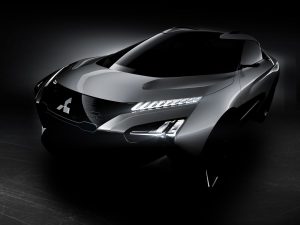
The teaser photo presents the e-Evolution as a modern, futuristic-looking crossover that features an edgy, certainly polarizing, design. It’s obviously a true show car, with huge wheels, side cameras, futuristic LED lights and no conventional door handles.
NISSAN
Nissan will feature its Leaf Nismo Concept, a performance take of the
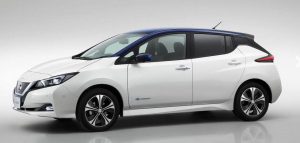
world’s best-selling battery-electric car. It’s intended to grab the attention of younger buyers with treatment by the automaker’s Nismo subbrand. Sporty exterior tweaks improve aerodynamics and reduce lift to keep the Nismo Leaf glued to the road. It also gets a sport-tuned suspension, high-performance tires and a custom-tuned computer that delivers “instant acceleration at all speeds.” The new battery-powered model will go on sale in 2019.
The Leaf Nismo may be sexy, but Nissan’s star at the Tokyo show is likely to be a Leaf electric crossover. For the past few days Nissan has been teasing a dark silhouette of what is surely an SUV styled vehicle. Stay tuned for this one.
SUZUKI
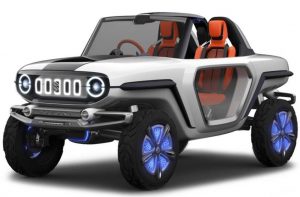
Suzuki may have left the U.S. market in 2013, but it carries on the Tokyo Motor Show’s tradition of wacky and weird automotive concept car creations with the e-Survivor Concept. As the name suggests, the e-Survivor is all-electric with an electric motor inside all four wheels, creating electric four-wheel drive. Huge ground clearance, gigantic wheel arches and almost nonexistent overhangs suggest class-leading approach and departure angles. Knobby tires cement its off-road ability.
TOYOTA
As you might expect, Toyota will debut the most electrified vehicles at the Tokyo show. The intros begin with the Fine-Comfort Ride Concept, a new six-seat hydrogen fuel cell electric sedan. It’s barely a foot longer than the Toyota Prius, but because of the distinctive powertrain, the layout offers nearly as much interior space as a Mercedes-Benz S-Class. With an estimated range of 620 miles between fill-ups, the Fine-Comfort Ride would deliver about twice the range of Toyota’s current production hydrogen fuel-cell vehicle, the Mirai.
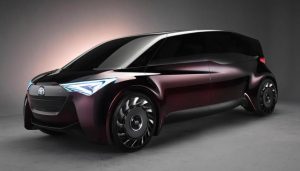
Toyota is billing the concept vehicle as “a new form of premium saloon” and says it wants passengers to feel like they are “being wrapped in comfort,” rather than simply going along for a ride. Gee, that sounds like it should be a Lexus, not a Toyota.
The Japanese auto maker goes from large size to tiny with the Concept i-Ride, a two-seat electric pod car perfect for crowded city streets with an estimated driving range of between 62-93 miles. The tiny EV is envisioned as a personal mobility option for the elderly or handicapped. Its gull-wing doors open wide to allow easy loading and unloading of wheelchairs, and it is driven by a joystick, instead of pedals.
Toyota’s FJ Cruiser has been retired, so how about a TJ Cruiser? It’s a boxy-styled concept that gets its name from the words “Toolbox” and “Joy,” and is a cross between a minivan and an SUV. Based on the company’s TNGA platform, power comes from a hybridized 2.0-liter gasoline engine. The show car can be fitted with either front or all-wheel-drive. Its SUV credentials are supported by the suspension setup and 20-inch alloy wheels with chunky Bridgestone tires.
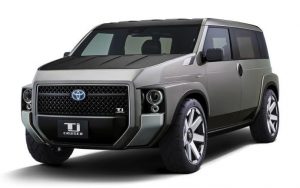
Toyota will also show its sporty side with the GR HV Sports concept. It draws heavily from the 86 sporty coupe with a couple twists. For starters, it gets a vertical array of LED headlamps and a targa top. Powering the matte black car is the Toyota Hybrid System-Racing, the electrified drivetrain technology used in the TS050 racer Toyota enters in Le Mans and the World Endurance Championship.
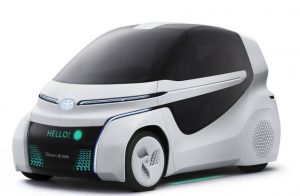
Last, and certainly not least, Toyota will present its latest version of the company’s other hydrogen-powered vehicle, the roomiest vehicle at the show, the Sora city bus. It uses two fuel cell stacks, two electric motors, a nickel-metal hydride battery and 10 high-pressure hydrogen tanks. Toyota aims to put 100 of the buses on the streets of Tokyo and have them in service when the Japanese capital hosts the 2020 Summer Olympics.

1 thought on “Preview: 2017 Tokyo Motor Show”